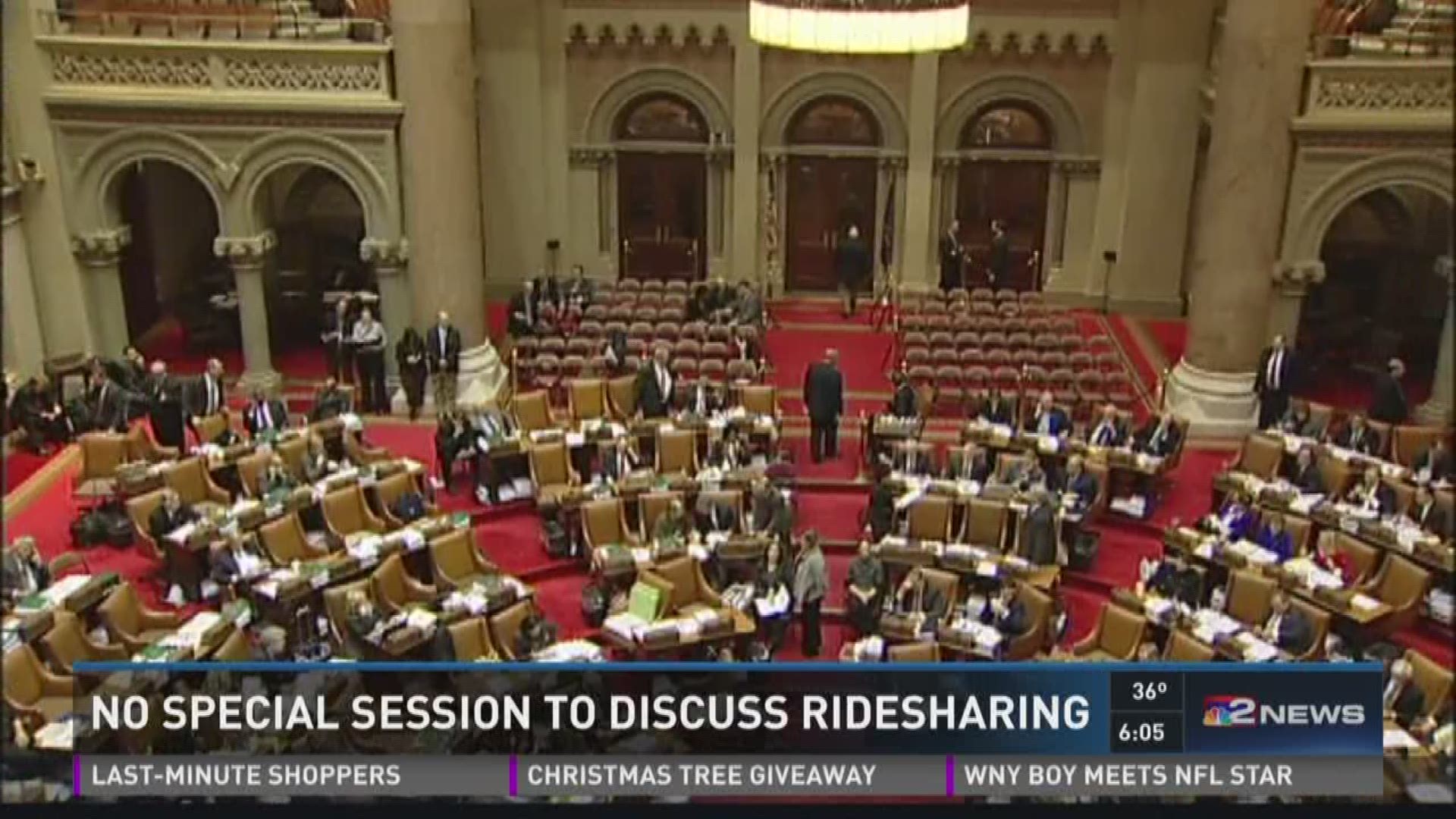ALBANY -- Talks broke down late Friday night over a special session of the state Legislature aimed at authorizing ride-hailing services and providing lawmakers their first pay raise since 1999.
At about 10:30 p.m., Senate Majority Leader John Flanagan said negotiations over having the session next week were unsuccessful, saying the sides would regroup next month when the six-month legislative session is set to begin.
The end of the discussions would again mean the Legislature would go without a pay raise.
A pay hike would have to be put in place by Dec. 31 in order to take effect in 2017. Otherwise, a raise would have to wait until 2019 at the earliest.
"At the end of the day, however, there just isn't enough in this package to justify convening a special session and bringing 213 legislators back to Albany before the end of the year," Flanagan, R-Suffolk County, said in a statement.
Gov. Andrew Cuomo and top lawmakers appeared to be narrowing in on legislative agreements Friday that could see lawmakers return to the state Capitol next week.
But any deal always seemed tenuous as some lawmakers continue to protest Cuomo's efforts to link ethics reform and other issues to their salary increase.
In recent weeks, Cuomo sought to entice upstate legislators by trying to reach an accord to legalize ride-hailing apps like Uber and Lyft outside New York City -- a bill that failed to win approval before the last session ended in June.
Uber has been on an all-out lobbying push for an agreement, but Cuomo and lawmakers were quickly running up against the deadline. And Monday is an observed state holiday, further complicating scheduling.
Patrick Kaler, the President and CEO of Visit Buffalo Niagara, said they are disappointed that legislators won't be meeting this year.
"We want to make sure that ride share does come to Buffalo and Upstate New York as quickly as possible," Kaler explained. "But we're not surprised, either. It wasn't a given that it would go into special session so now we just move forward with our original plans of starting all of our efforts in January."
Hanukkah, meanwhile, begins Saturday and runs through Jan.1, which some Jewish lawmakers have raised concern about when asked if they would be available for a potential special session next week.
Some lawmakers were vocal in their opposition to a special session, as well as the closed-door talks between Cuomo, Flanagan and Assembly Speaker Carl Heastie, D-Bronx.
There was no immediate comment from Heastie's office or Cuomo's office on Flanagan's statement.
Assembly Minority Leader Brian Kolb, R-Canandaigua, Ontario County, issued a statement Friday saying a special session "simply undermines the legislative process."
"Without time-sensitive or emergency legislation to consider, our work should be done thoughtfully, deliberately and openly," said Kolb, who wants the Legislature to wait until its regularly scheduled session Jan. 4 to reconvene.
Lawmakers earn $79,500 a year in base salary, plus stipends for leadership positions. They are already the third highest paid state Legislature in the nation.
They are also allowed to hold outside income, but talks between Cuomo and top lawmakers had centered on perhaps requiring legislators to receive clearance from the Legislative Ethics Commission before taking on more than $5,000 in outside work.
Cuomo, a Democrat, had also been pushing lawmakers to approve a series of new oversight positions, including an inspector general for the State University of New York system and a prosecutor to oversee the state's contracting process.
The push is in response to a bid-rigging and bribery scandal that engulfed some of Cuomo's major economic-development projects, which resulted in criminal charges brought against ex-Cuomo aide Joseph Percoco and SUNY Polytechnic Institute President Alain Kaloyeros in September.
State Attorney General Eric Schneiderman, also a Democrat, pushed back in a letter Wednesday to Cuomo and top lawmakers.
He criticized Cuomo's proposal, saying it centralizes power in the governor's office and is “likely unconstitutional.” Cuomo would have the power to appoint the contracting prosecutor and remove that person at his will.
The proposal “does not establish the independence required of a procurement watchdog and therefore will not achieve the real accountability and reform our State desperately needs,” Schneiderman wrote.
Rich Azzopardi, a spokesman for Cuomo, said earlier Friday that the new inspectors general would be “purely additive.” Their oversight would be on top of the attorney general and state comptroller, who would maintain their jurisdiction, Azzopardi said.
“Anyone who thinks we don’t need additional enforcement capacity is living in the state of denial and not the state of New York,” Azzopardi said.

